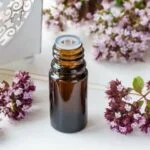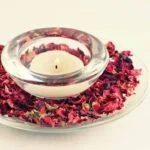Aromatherapy is the use of natural plant extracts, known as essential oils, to promote physical and psychological well-being. This holistic healing treatment has been around for centuries and is still widely used today. The purpose of aromatherapy is to harness the therapeutic properties of essential oils to improve overall health and vitality.
The history of aromatherapy dates back to ancient civilizations such as Egypt, China, and India, where plant essences were used for medicinal and spiritual purposes. Over time, the practice has evolved and gained popularity in modern-day wellness routines due to its proven benefits. Understanding the basics of aromatherapy is essential for utilizing its healing potential in everyday life.
In this article, we will explore the science behind essential oils and their effects on the body and mind, as well as the different methods of aromatherapy – from inhalation techniques to topical applications. Additionally, we will delve into how aromatherapy can be integrated into daily life for stress relief, mental clarity, and emotional balance. Join us on a journey to uncover the purpose of aromatherapy and embrace its healing power in your own wellness practices.
History of Aromatherapy
Aromatherapy has been utilized for centuries as a natural method to promote health and well-being. The history of aromatherapy dates back to ancient civilizations such as the Egyptians, Greeks, and Romans, who used aromatic plants and essential oils for medicinal, spiritual, and cosmetic purposes. In fact, the term “aromatherapy” was coined by French chemist René-Maurice Gattefossé in the 1920s, although the practice itself has been around for much longer.
Ancient Practices
In ancient Egypt, aromatic plants and oils were used in religious ceremonies, embalming practices, and for their healing properties. The Greeks and Romans also recognized the therapeutic benefits of essential oils, using them in baths, massages, and as natural remedies for various ailments. Across different cultures and civilizations, aromatic plants were highly valued for their scent and healing properties.
Modern Day Uses
Today, aromatherapy has evolved into a popular alternative healing modality used in conjunction with conventional medicine. With advancements in technology and scientific research, modern-day practitioners have a better understanding of the chemical properties of essential oils and how they interact with the body on a physiological level. Aromatherapy is now widely incorporated into holistic healthcare practices such as massage therapy, acupuncture, chiropractic care, and spa treatments.
As we continue to appreciate the historical roots of aromatherapy while also embracing its modern applications, it becomes evident that this ancient practice has stood the test of time due to its effectiveness in promoting health and wellness. Understanding the historical context of aromatherapy helps us recognize its enduring significance in our daily lives within different cultural contexts.
How Aromatherapy Works
Aromatherapy works by utilizing the powerful scents of essential oils to promote physical and psychological well-being. The purpose of aromatherapy is to harness the natural benefits of these oils to enhance the body and mind, providing a holistic approach to health and wellness.
The science behind aromatherapy lies in the way that essential oils interact with the body. When inhaled or applied to the skin, these oils can have an impact on the limbic system, which is responsible for emotions, behaviors, motivation, and long-term memory. This is why certain scents can evoke specific feelings or memories. For example, lavender oil is known for its calming properties, while citrus oils are often used for their energizing effects.
Moreover, essential oils can also have direct physiological effects on the body. For instance, tea tree oil has antimicrobial properties that can help fight infections, while peppermint oil has been shown to alleviate headaches and improve focus. Understanding how different essential oils work allows individuals to select the right ones for their needs and goals when using aromatherapy.
In addition to affecting mood and physical health, aromatherapy also stimulates the olfactory system, which plays a role in regulating stress levels and overall well-being. By targeting this system through scent, aromatherapy can help manage anxiety and promote relaxation. Whether used through inhalation or topical application, essential oils have a wide range of effects on both the body and mind.
| Effect | Example |
|---|---|
| Calming | Lavender oil |
| Energizing | Citrus oils |
| Antimicrobial | Tea tree oil |
| Pain relief | Peppermint oil |
Benefits of Aromatherapy
Aromatherapy has long been recognized for its ability to improve both mental and physical well-being. Through the use of essential oils, aromatherapy offers a holistic approach to health and wellness, targeting various aspects of the body and mind. From reducing stress and anxiety to alleviating physical discomfort, the benefits of aromatherapy are vast and can be experienced by individuals of all ages.
Improving Mental Health
One of the primary purposes of aromatherapy is to improve mental health. Essential oils such as lavender, chamomile, and bergamot have been shown to have calming effects on the mind, helping to reduce feelings of anxiety, depression, and stress.
The inhalation of these soothing scents can trigger a response in the brain that promotes relaxation and emotional well-being. Additionally, certain essential oils have been found to enhance cognitive function and improve focus, making them beneficial for individuals struggling with concentration or attention issues.
Promoting Physical Wellness
In addition to its impact on mental health, aromatherapy also promotes physical wellness. Many essential oils possess analgesic and anti-inflammatory properties that can help alleviate pain caused by headaches, muscle tension, or chronic conditions such as arthritis. Furthermore, the topical application of certain essential oils can aid in wound healing and skin rejuvenation. By targeting physical ailments through natural means, aromatherapy serves a dual purpose in enhancing overall well-being.
Enhancing Sleep Quality
Another significant benefit of aromatherapy is its ability to enhance sleep quality. Essential oils like lavender and chamomile are commonly used to promote relaxation and facilitate restful sleep.
Diffusing these scents in the bedroom or adding a few drops to a bath before bedtime can help create a calming environment conducive to falling asleep faster and enjoying more restorative sleep throughout the night. With its potential to address both mental and physical concerns related to sleep disturbances, aromatherapy offers a comprehensive approach to improving overall sleep quality.
Different Methods of Aromatherapy
Aromatherapy offers various methods for using essential oils to promote mental and physical well-being. Each method targets different aspects of the body and mind, providing unique benefits for individuals seeking holistic healing. Understanding the different methods of aromatherapy allows individuals to customize their approach based on their specific needs and preferences.
- Inhalation: This method involves breathing in the aroma of essential oils, either directly or through a diffuser. The olfactory system plays a key role in this method, as the scent molecules travel through the nose and stimulate the brain’s limbic system, which is associated with emotions, memories, and behaviors. Common inhalation techniques include using an essential oil diffuser, adding a few drops to a tissue or cotton ball, or inhaling directly from the bottle.
- Topical Application: Applying essential oils directly to the skin allows for absorption into the bloodstream and localized effects on the body. This method is often used for massage therapy, skincare routines, or targeted relief for specific ailments such as muscle pain or headaches. It is important to dilute essential oils with a carrier oil before applying them to the skin to avoid irritation or sensitization.
- Diffusion: Diffusing essential oils into the air creates a therapeutic atmosphere that can benefit multiple individuals in a shared space. A diffuser disperses microscopic oil particles into the air, allowing for easy inhalation and creating a calming or invigorating environment depending on the chosen oils. This method is commonly used in homes, spas, yoga studios, and office spaces to enhance relaxation and focus.
Understanding these different methods of aromatherapy allows individuals to incorporate them into their daily routines according to their specific wellness needs and lifestyle preferences. Whether it’s through inhalation, topical application, or diffusion, each method offers unique ways to experience the healing power and purpose of aromatherapy in everyday life.
Choosing the Right Essential Oils
When it comes to aromatherapy, choosing the right essential oils is crucial in reaping the therapeutic benefits they offer. Each essential oil has its own unique scent and therapeutic properties, making it important to understand which ones will best suit your needs. There are a wide variety of essential oils available, each with their own distinct aroma and health benefits.
One key factor to consider when choosing essential oils is their therapeutic properties. For example, lavender essential oil is known for its calming and relaxing effects, making it a popular choice for promoting better sleep and reducing anxiety. On the other hand, peppermint essential oil is often used for its invigorating and energizing properties, which can help with mental alertness and relieving headaches.
Another important consideration when selecting essential oils is personal preference. The scents of different essential oils can vary widely, so it’s important to choose ones that you enjoy. Whether you prefer floral scents like rose or jasmine, or more earthy scents like patchouli or vetiver, there are plenty of options to explore based on your individual tastes.
Understanding the different scents and therapeutic properties of essential oils is the key to choosing the right ones for your aromatherapy needs. Whether you’re looking for relaxation, stress relief, or an energy boost, there are a wide variety of essential oils available to support your well-being. By taking the time to research and experiment with different scents, you can discover which essential oils work best for you and incorporate them into your daily aromatherapy practice.
Aromatherapy for Stress Relief
Aromatherapy has been used for centuries as a holistic healing treatment to manage stress-related conditions such as anxiety, insomnia, and headaches. The purpose of aromatherapy in addressing these issues is to promote relaxation, reduce tension, and alleviate symptoms through the use of essential oils. By understanding the various scents and their therapeutic properties, individuals can effectively incorporate aromatherapy into their daily routine to improve their mental and physical well-being.
According to scientific research, certain essential oils have been found to have calming effects on the nervous system which can help reduce feelings of anxiety and promote relaxation. For example, lavender oil has been shown to lower heart rate and blood pressure, leading to a state of calmness and tranquility. Similarly, bergamot oil has been found to uplift mood and relieve stress, making it a popular choice for managing anxiety.
In addition to anxiety relief, aromatherapy is also beneficial for managing insomnia and headaches. By using essential oils such as chamomile or clary sage before bedtime, individuals may experience improved sleep quality and reduced insomnia symptoms. Likewise, peppermint oil can be used as a natural remedy for relieving tension headaches due to its soothing and analgesic properties.
| Essential Oil | Therapeutic Properties |
|---|---|
| Lavender | Calming effects on the nervous system |
| Bergamot | Mood uplifting and stress-relieving properties |
| Chamomile | Promotes improved sleep quality |
| Peppermint | Soothing and analgesic properties for headache relief |
By incorporating aromatherapy into their daily self-care practices through methods such as inhalation or topical application of essential oils, individuals can effectively manage stress-related conditions in a natural and non-invasive way. Whether it’s creating a relaxing atmosphere at home with an essential oil diffuser or using a roll-on blend for instant relief during a stressful day at work, the purpose of aromatherapy is to provide an accessible and effective solution for promoting emotional well-being.
Integrating Aromatherapy Into Daily Life
Aromatherapy can be seamlessly integrated into daily life to promote relaxation, reduce stress, and improve overall well-being. One of the most common ways to incorporate aromatherapy at home is through the use of essential oil diffusers.
By adding a few drops of essential oils such as lavender, eucalyptus, or peppermint to a diffuser, individuals can create a calming ambiance in their living spaces. This can be especially beneficial after a long day at work or when trying to unwind before bedtime.
In the workplace, aromatherapy can also be utilized to enhance productivity and create a more pleasant environment. Some companies have introduced the use of essential oil diffusers in office spaces to help employees manage stress and boost focus. Certain scents like lemon, rosemary, or citrus blends are known for their invigorating properties and can be diffused in an office setting to promote alertness and mental clarity.
Furthermore, integrating aromatherapy into self-care practices can involve using essential oils during massage therapy, yoga sessions, or meditation. For instance, incorporating soothing scents like chamomile or sandalwood during a massage can enhance relaxation and alleviate tension in the body.
Similarly, using essential oils in combination with meditation or yoga exercises can create a more tranquil and immersive experience, allowing individuals to fully reap the therapeutic benefits of aromatherapy. Overall, by incorporating aromatherapy into daily routines both at home and at work, individuals can experience the holistic benefits of this practice on a regular basis.
Conclusion
In conclusion, aromatherapy has a long history of use for its therapeutic properties, and as modern science continues to study its effects, the purpose of aromatherapy becomes increasingly clear. The use of essential oils has been shown to offer various benefits for both mental and physical well-being, making it a valuable tool for managing stress and promoting relaxation.
By understanding the different methods of aromatherapy, such as inhalation, topical application, and diffusion, individuals can integrate essential oils into their daily routines to experience the full range of benefits. Whether it’s using lavender oil for stress relief or peppermint oil for headaches, choosing the right essential oils based on their therapeutic properties is essential in maximizing the effectiveness of aromatherapy.
As more people embrace the healing power and purpose of aromatherapy in everyday life, it’s important to recognize that aromatherapy is not just a trend or passing fad. It is a holistic approach to wellness that has stood the test of time and continues to provide valuable support for maintaining a healthy mind and body.
Ultimately, the purpose of aromatherapy extends beyond just relaxation; it encompasses overall well-being and offers a natural alternative for improving one’s quality of life.
Frequently Asked Questions
What Is the Importance of Aromatherapy?
Aromatherapy is important for promoting relaxation, reducing stress, and improving overall well-being. The use of essential oils can also help alleviate symptoms of various conditions such as headaches, insomnia, and anxiety.
What Are the Objectives of Aromatherapy?
The objectives of aromatherapy include using essential oils to promote physical and mental health. This holistic approach aims to enhance the body’s natural healing processes, improve mood, relieve pain, and support overall wellness.
How Does Aromatherapy Work in the Body?
Aromatherapy works in the body through inhalation or absorption of essential oils. When inhaled, the molecules of the oils stimulate the olfactory system and can have a direct impact on emotions and memory. When applied topically, the oils can be absorbed into the bloodstream and provide therapeutic effects throughout the body.

Are you looking for a natural way to improve your health and wellbeing?
If so, aromatherapy may be the answer for you.




